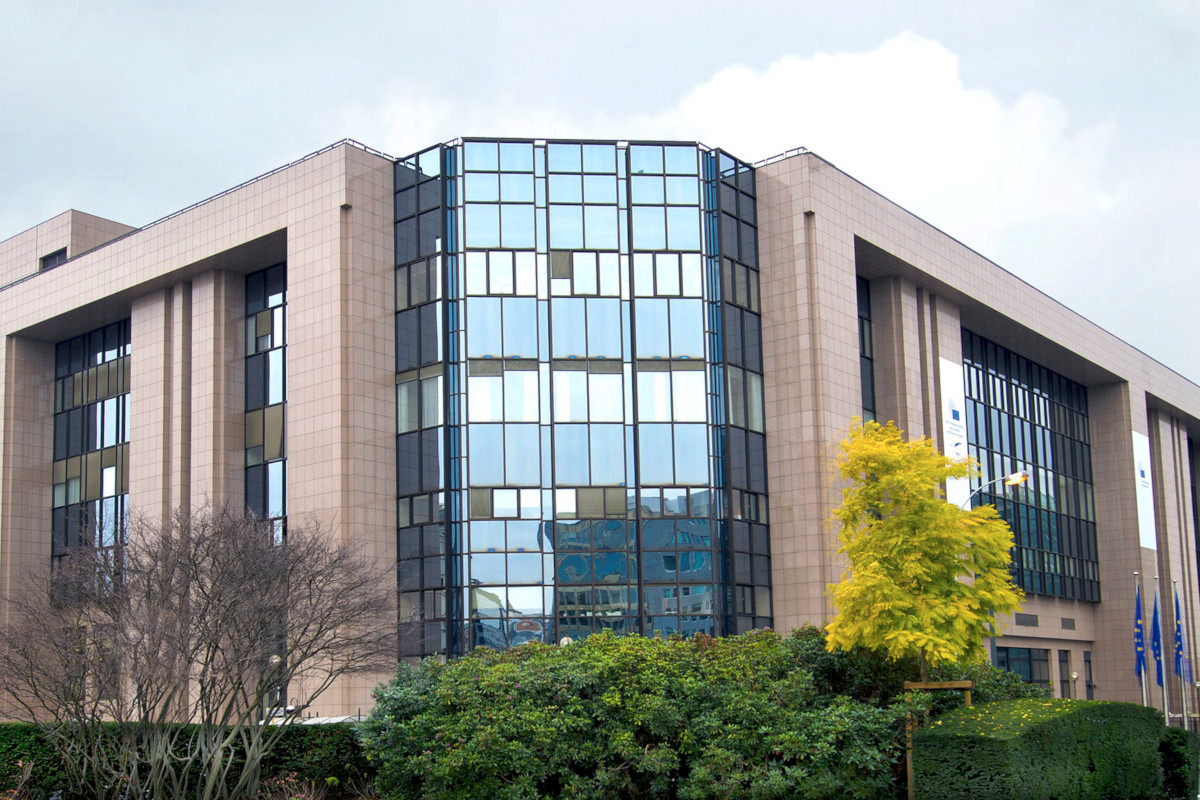News
Launched in 1999 and updated regularly, Statewatch News includes our own reporting and writing as well as articles, announcements, documents and analyses from elsewhere on civil liberties, EU policies and state practices. You can receive updates in your inbox by signing up to our mailing list, or use our RSS feed to get instant alerts.

EU border externalisation: updates for Iraq and Bangladesh
Two 'action files' obtained by Statewatch update European government ministers on the state of counter-migration spending and projects in Bangladesh and Iraq. Both countries were recently reported by the EU to be cooperating more on deportations of their citizens from Europe, and these 'action files' reveal considerable effort from the EU to further restrict migration.

Border externalisation: how to make people deport themselves
The latest issue of our bulletin on EU border externalisation policies includes: how EU member states want Frontex to expand its control in non-EU countries; the Council thinking out loud about how to pressure people into deporting themselves; and the EU wants to reassert control in the Sahel.

The EU targets Guinea for visa punishment: a sign of what's to come
On 15 July 2025, the European Commission proposed punitive visa sanctions against Guinea, marking an escalation in its campaign to force third countries to cooperate on deportations. This move, based on Article 25a of the EU Visa Code, cites Guinea’s persistent “failure to cooperate sufficiently” with the EU’s deportations agenda. It is emblematic of the coercive diplomacy the EU is willing to resort to, even if the results of such coercion are unclear.

The US demands exemptions for military and diplomatic staff in the EU’s digital borders system
The US has demanded the EU give preferential treatment to its diplomatic, military and other personnel, exempting them from mandatory fingerprinting and facial scanning at the borders of the Schengen zone. An internal note from the Council of the EU provides guidance to member states on how to be “flexible”.

UK: More than 120 organisations call out government's proposals on earned settlement
Alongside over 120 organisations, Statewatch is calling out the UK government’s proposals and the accompanying consultation on earned settlement. The government’s proposals would disproportionately punish refugees and racialised communities, by imposing hierarchical and discriminatory standards for those pursuing settlement.

Joint statement condemning EU law enabling home raids, policing of public services and racial profiling
The EU must withdraw all provisions to expand and normalise immigration raids and surveillance measures under the proposed Deportation (“Return”) Regulation. A statement signed by Statewatch and 87 other organisations warns of the real and immediate threat posed by the proposals which purport to legitimise ICE-style immigration enforcement measures across the EU.

Submission to Home Office consultation on a new legal framework for law enforcement use of biometrics, facial recognition and similar technologies
On 12 January, Statewatch responded to the Home Office’s consultation on developing a new legal framework for governing the use of biometrics, facial recognition and similar technologies.

The EU's “new and innovative solution” to migration: pay other countries to intercept people
An EU Council document obtained by Statewatch shows EU policymakers dredging up an old idea - paying non-EU states to intercept and detain irregular migrants - in service of their larger project to prevent irregular migration to Europe.

UN report warns of “existential threat” to civil liberties
Shrinking aid systems and expanding security policies are eroding democratic rights and freedoms, a UN expert warned in a report published last year that received no coverage from mainstream media.

Swiss government urged to rethink mass telecoms surveillance plan
The Swiss government should halt its plans to extend the widespread surveillance of telecommunications, says a letter signed by 19 organisations including Statewatch. The country’s federal government is planning to revise a law that obliges telecoms companies to retain data about users, in case it is of interest to the police. The letter warns this would violate rights, run counter to European jurisprudence, and create huge cybersecurity risks.

Border externalisation: "new and innovative" solutions for migration control
The latest issue of our bulletin on EU border externalisation policies includes: plans to pay third countries to intercept and detain irregular migrants, an update on visa sanctions as leverage for deportation cooperation, a new EU-funded pullback coordination centre in Eastern Libya and the EU's partnership with the Taliban for deportations

Greece: Criminal law used to target civil society organisations
The Greek government's latest move to stifle the work of civil society groups has been condemned by more than 70 organisations, including Statewatch, as unjust, unlawful and unreasonable.

Schengen borders: more deportations, surveillance and militarisation in the works
An internal EU report obtained by Statewatch offers an update on efforts to strengthen border and immigration controls in the Schengen area in the first half of 2025. The report reflects a desire to step up the anti-migrant policy agenda pursued by European policymakers in recent years – more deportations, more surveillance and more militarisation of borders.

EU member states want to expand police surveillance of travel
In the name of fighting crime and terrorism, EU law requires mandatory police surveillance of international air travel. Governments are now considering surveillance of all other modes of transport, in particular maritime travel. They also want to use data for new purposes, such as immigration control. A working group has been set up to consider new legal proposals.

Prints in politics: cheap, easily replicated and widely accessible
Printmaking is an ideal medium for wide and diverse engagement with art: it is replicable, cheap, and widely accessible. These features have made prints particularly attractive to political activists looking to inspire collective mobilisation. The Statewatch Library & Archive contains a number of examples of the medium, from a wide variety of movements.

EU to increase lethal migration cooperation with Libya
The EU is set to fund migration control infrastructure in the eastern region of Libya, a move that will increase cooperation with general Khalifa Haftar, once a pariah to western states. The plan to extend EU cooperation into eastern Libya comes despite long-standing condemnation of Libyan and EU involvement in human rights abuses, shooting at NGO vessels, and accusations of crimes against humanity.

Reclaiming migration: a call for justice, dignity, and an anti-racist Europe
To mark International Migrants Day more than 40 organisations, including Statewatch, are calling for "a Europe grounded in justice and equality" and "policies that honour dignity and rights of all."

US access to EU citizens’ biometric data: ministers approve EU negotiating mandate
EU ministers have agreed to launch negotiations on an agreement that would grant US border agencies direct access to personal data stored in EU member state databases, and give EU agencies similar access to US data. The US is demanding access to the databases of all states that are part of its Visa Waiver Programme, for “immigration screening and vetting activities.” This is part of a broader plan to massively increase the amount of sensitive data gathered on travellers.

UK: ‘Radio Nick’: a private spy hired by the police
In October, a court case led to the exposure of a private spy who had been hired by the police to infilitrate multiple campaign groups for almost a decade, Nick Gratwick. A new report by the Undercover Research Group documents Gratwick's activities in the late 1990s and early 2000s in detail. The case highlights the lack of laws and regulations governing private intelligence agents.

UK: Joint briefing on the “do not introduce digital ID cards” parliamentary petition debate
In September, the government announced plans for a new digital ID scheme that would be mandatory for ‘right to work’ checks by 2029. A petition against the proposal accrued nearly three million signatures, making it the fourth largest petition in British history and the second largest non-Brexit petition. It highlights problems with: mission creep; privacy; security risks; accuracy; discrimination and exclusion; and fundamental changes in the relationship between the state and the individual.
Spotted an error? If you've spotted a problem with this page, just click once to let us know.